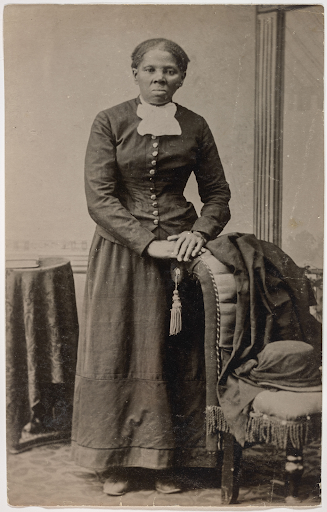The Underground Railroad
On the Tracks to Freedom
Conductors of the Railroad
Henry Bibb
Henry Bibb was born into slavery in 1815 on a plantation in Kentucky. Throughout his life, Henry wrote multiple books, including Narrative of the Life and Adventures of Henry Bibb. This later became one of the most well-known slave narratives of his time. He escaped from slavery and traveled to Detroit, Michigan in 1840. After a few years of lecturing against slavery in the U.S. Bibb moved North, where he began the first black newspaper in Upper Canada called The Voice of the Fugitive. Henry used his position at the newspaper to spread awareness of the horrors of slavery and encourage other slaves to strive for freedom.

A portrait of Henry Bibb. (Anderson, Katherine, and Fiona Mills. 2000, docsouth.unc.edu/neh/bibb/bibb.html.)
“I walked with bold courage, trusting in the arm of Omnipotence; guided by the unchangeable North Star by night, and inspired by an elevated thought that I was fleeing from a land of slavery and oppression, bidding farewell to handcuffs, whips, thumb-screws and chains.” - Henry Bibb
Harriet Tubman

A photograph of Harriet Tubman. (KeyesReporter, Allison, et al. “Harriet Tubman, an Unsung Naturalist, Used Owl Calls as a Signal on the Underground Railroad.” Audubon, 25 Feb. 2020, www.audubon.org/news/harriet-tubman-unsung-naturalist-used-owl-calls-signal-underground-railroad.)
Perhaps the best-known conductor of the Underground Railroad is Harriet Tubman. Born with the name Araminta Ross around 1820, she later changed her name to Harriet, after her mother. Harriet was born a slave and eventually escaped from a plantation in Maryland in 1849. After traveling the Underground Railroad, Tubman eventually settled in Pennsylvania where she got a job in Philadelphia. The year after, Tubman prepared to return to the plantation in Maryland. She rescued her sister’s two children and soon after her brother. Unfortunately, her third trip to Maryland was not as successful. She returned to free her husband but found he had married another woman. Nonetheless, she escorted a seperate group slaves to freedom. Using a combination of coded messages and safe houses, Harriet Tubman helped free over 300 slaves over her lifetime. She is still recognized as one of the most important conductors of the Underground Railroad.
“I was the conductor of the Underground Railroad for eight years, and I can say what most conductors can’t say — I never ran my train off the track and I never lost a passenger.” - Harriet Tubman